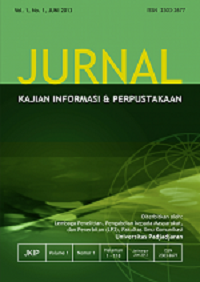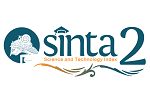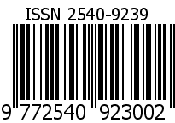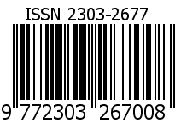ISSN 2303-2677 (Print)
ISSN 2540-9239 (Online)
Jurnal Kajian Informasi & Perpustakaan is a double peer-reviewed journal taken from research and study reports on Information and Library Science. Jurnal Kajian Informasi & Perpustakaan is published twice annually (June and December) by the journal editors from the Library Study Program Faculty of Communication Science, Universitas Padjadjaran in cooperation with the Ikatan Sarjana Ilmu Perpustakaan dan Informasi Indonesia (ISIPII). Jurnal Kajian Informasi & Perpustakaan accredited by Ministry of Education, Culture, Research and Technology of the Republic of Indonesia (Peringkat 2/Sinta 2) based on SK No. 79/E/KPT/2023 about Peringkat Akreditasi Jurnal Ilmiah Periode I Tahun 2023. Every received article will be reviewed by the journal editors and external editors and reviewers who are competent in each related field. The review uses double-blind peer review before the journal is published. Jurnal Kajian Informasi & Perpustakaan will publish selected paper under a Creative Commons Attribution ShareAlike 4.0 International License. The study area of this journal are librarianship, information and archives, including:
Several other changes are informed in the journal history. |  |
Vol 13, No 1 (2025): Accredited by Ministry of Education, Culture, Research and Technology of the Republic of Indonesia SK No. 79/E/KPT/2023
Table of Contents
|
Public reading interest through utilization of iPusnas National Library of the Republic of Indonesia
Hanna Nabiila Qurota Aini, Prijana Prijana, Asep Saeful Rohman
|
1-16
|
|
Fadhila Nurul Husna Zalmi, Rahmi Yunita, Lailatur Rahmi, Resty Jayanti Fakhlina, Syakira Khairunnisa, Nurul Khairat
|
17-38
|
|
Herwan Junaidi, Pudji Muljono, Yusman Syaukat
|
39-56
|
|
Mochamad Chazienul Ulum, Arwin Anindyka, Karlina Dewi Sukarno
|
57-76
|
|
Rully Khairul Anwar, Graceline Esterini Mulyana, Yunus Winoto
|
77-96
|
|
Eka Bintang Nur Cahya, Setiawan Edi Wibowo
|
97-114
|
|
Primus Sanbein
|
115-132
|
|
Jeihan Nabila, Nesa Riska Pangesti, Riski Gusri Utami
|
133-144
|
|
Elnovani Lusiana, Fitri Perdana, Ute Lies Siti Khadijah, Tita Nursari
|
145-160
|
|
Puji Lestari, Sintha Sih Dewanti
|
161-176
|














2.png)
.png)




